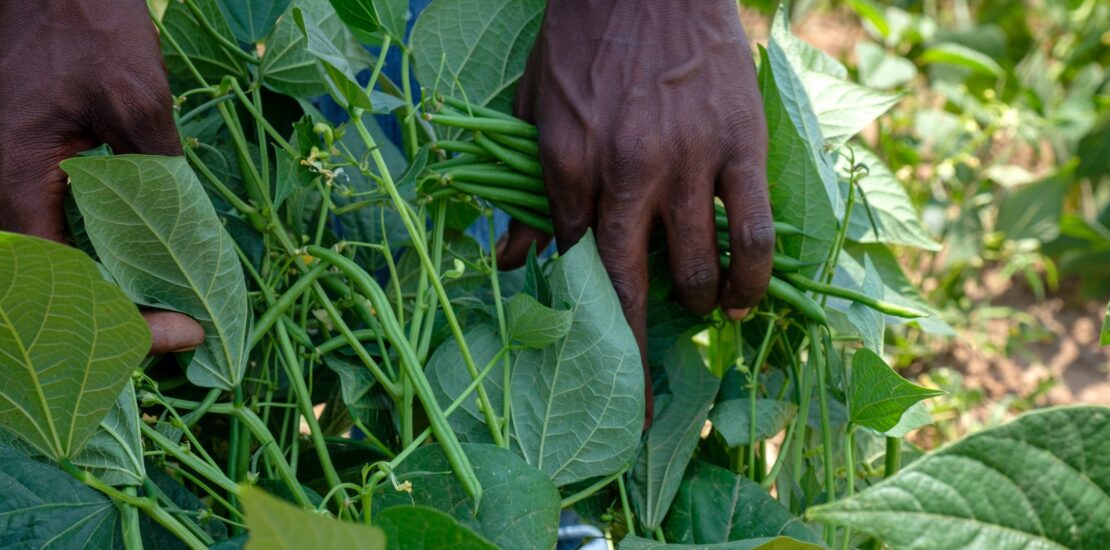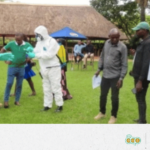News digest: agri-food systems and sustainability
- 10/02/2022
- Posted by: Gaetan Dermien
- Category: Africa, Angola, Benin, Burkina Faso, Burundi, Cameroon, Caribbean, Côte d'Ivoire, Democratic Republic Of The Congo, Dominican Republic, Ethiopia, Fiji, Ghana, Guinea, Kenya, Madagascar, Mali, Mauritius, News, Nigeria, Pacific, Rwanda, Senegal, Sierra Leone, Suriname, Tanzania, Togo, Uganda, Zimbabwe

FOOD SYSTEMS AND POLICY
Trade relations between the European Union and Africa: forging new partnerships
On 10 January, in the context of the French Presidency of the Council of the European Union and ahead of the European Union-African Union Summit scheduled for February 2022, Franck Riester, French Minister Delegate for Foreign Trade and Economic Attractiveness, held an international ministerial conference dedicated to the prospects of the European trade partnership with Africa. The overhaul of the partnership between the European Union and Africa is high on the agenda of the French Presidency of the Council of the European Union. The European Union-African Union Summit in February 2022 was an opportunity to mark this ambition at the highest political level.
Source: French Presidency of the Council of the European Union, 8 January 2022
Why Africa does not need food help
What’s the path to ensuring Africa’s agricultural renaissance? In “Africa’s Agricultural Renaissance: From Paradox to Powerhouse”, United Nations Development Programme (UNDP) economist Ayodele Odusola explains that about 60% of Africa’s poor could be lifted out of poverty if agriculture was transformed and African farmers moved from their current way of life to profitable, entrepreneurial activity.
Source: Agridigitale, 29 December 2021
World Bank mobilises US$570 million for food security in West Africa
The World Bank is launching a US$570 million International Development Association (IDA) funded Food Systems Resilience Program (FSRP) to address food insecurity in West Africa. The programme will be implemented in several phases to support the food security problem. The first phase will start in Mali, Togo, Niger and Burkina Faso with three organisations: ECOWAS, CILSS, CORAF.
Source: Commodafrica, 7 December 2021
Germany gives CHF 2.8 million to STDF fund
Germany’s Federal Ministry for Economic Cooperation and Development has contributed €2,675,000 (approx. CHF 2.8 million) for 2021–2024 to the Standards and Trade Development Facility (STDF) to help developing and least-developed countries (LDCs) meet international food safety, animal and plant health standards for trade. The contribution will also help these countries to respond to the challenges posed by Covid-19. The German contribution will be used to develop and support projects that will strengthen the ability of small-scale farmers, producers, traders and governments to access global and regional markets for food and agriculture products, in line with the STDF’s Strategy for 2020-2024. This investment is critical for developing countries, supporting not only economic recovery but also longer-term resilience against Covid-19 and similar shocks, as highlighted in the STDF’s latest film “Shaping A Safer World”.
Source: World Trade Organization, 10 December 2021
Zimbabwe: Growers applaud export horticulture revolving fund
Zimbabwe’s government recently approved the establishment of a horticulture export revolving fund to the tune of US$30 million in line with the country’s Horticulture Recovery and Growth Plan (HRGP). Chief executive officer of Green Afrique Technologies, Anglistone Sibanda, said a well-resourced revolving fund will greatly transform the sector and empower farmers: “HRGP is one of the greatest things done by the new dispensation and promoting exports will help us to secure markets, which will improve the lives of farmers as well as the economy at large.” Zimbabwe Farmers Union (ZFU) executive director Mr Paul Zakariya said access to appropriate funding remains a constraint in increasing output from the sector: “We have one of the best climates for a number of export crops and our climate allows our blueberries and peas farmers to get into the market much earlier than other producers. Access to appropriate and patient funding will enable us to increase production and fully exploit such windows.”
Source: Fresh Plaza, 9 December 2021
Zimbabwe’s Agricultural Marketing Authority to create more horticultural markets
Zimbabwean President Emmerson Mnangagwa has launched the Agricultural Marketing Authority (AMA) programme with the aim of creating fresh produce markets to improve rural economies and end poverty in the countryside. The programme was officially launched in the village of Njijika and targets 35,000 villages. AMA donated 10,000 fruit trees for the Presidential Rural Horticulture Programme, which aims to integrate rural farming communities into citrus value chains.
Source: Fresh Plaza, 20 December 2021
Papua New Guinea: Government price support initiative encourages farmers
In 2021 the Department of Agriculture and Livestock received major backing from the Government approving Kina (K) 50 million towards its programme of commodities price support incentives. An additional K150 million allocation for the Agriculture Price Support Programme in 2022 has been welcomed by the Department of Agriculture and Livestock. The Price Support Programme was initiated to support prices of commodities (cocoa, coffee, vanilla, rubber, livestock, oil palm, rice, copra and fresh produce). This programme will see farmers directly benefiting from increased prices of agriculture commodities.
Source: Fresh Plaza, 5 January 2022
Programmes for the promotion of EU agricultural products in 2022
The European Commission has allocated €185.9 million (US$210.6 million) in 2022 for the promotion of European Union agri-food products, both at global and European levels. According to the Commissioner for Agriculture, Janusz Wojciechowski, this policy will be in favour of the development of organic farming and the promotion of sustainable practices to ensure healthy food. The EU will therefore focus on campaigns related to the European Green Deal, the objectives of the Farm to Fork strategy, the European plan “Overcoming Cancer”, and the EU organic action plan.
Source: Fresh Plaza, 3 January 2022
FOOD SYSTEMS AND POLICY
Plastics in agrifood systems
Ocean litter has been making the headlines, but a new report by FAO suggests that plastic pollution is also pervasive in our agricultural soils. The report by the Food and Agriculture Organization of the United Nations (FAO) suggests that the land we use to grow our food is contaminated with far larger quantities of plastic pollution, posing an even greater threat to food security, people’s health, and the environment. The report, entitled “Assessment of agricultural plastics and their sustainability: a call for action”, contains some startling numbers. Agricultural value chains use 12.5 million tonnes of plastic products each year. A further 37.3 million tonnes are used in food packaging. The crop production and livestock sectors were found to be the largest users, accounting for 10.2 million tonnes per year collectively.
Source: FAO, 7 December 2021
Sustainability demands tax rethink
Volkert Engelsman of Dutch organics supplier Eosta (and COLEACP member), with Paul Polman, former CEO of Unilever, is advocating a new tax system to deliver the green economy that is urgently needed. “Companies now have a social responsibility that goes beyond making profits for shareholders,” they wrote in an opinion piece published last week in Dutch daily NRC. “Once you have seen how the economy is undermining itself, you can no longer ‘unsee’ it. The need to work more sustainably has become existential.” The authors say that all kinds of legislation is in the pipeline in Europe to require companies to report on sustainability.
Source: Eurofruit, 16 December 2021
Creating sustainable apple and pear varieties for a warming world
Initiated in 2002, the Hot Climate Programme is a global collaboration between partners VentureFruit, Plant & Food Research, the Institute of Agrifood Research and Technology (IRTA) and Fruit Futur. The recent annual Hot Climate Programme field days hosted in Spain evaluated 17 new apple and pear varieties that have shown superior hot climate performance and resilience in comparison to traditional varieties, while producing high quality fruit that meets production, supply and market requirements.
Source: Fresh Plaza, 9 December
Zambia seeks to implement climate-adapted farming methods
In recent years Zambia has seen the impacts of climate change. The rains come late in the season and end early, often resulting in heavy runoff and floods. The Zambian-German Agricultural Knowledge and Training Centre (AKTC) climate-adapted farming methods project is aimed at minimising climate-related impacts and securing income among small-scale and emergent farmers through the practice of mechanised conservation agriculture. The AKTC project will be at AgriTech Expo Zambia (7–9 April 2022).
Source: Fresh Plaza, 1 December 2021
France: “Demain la Terre is the most successful reference in terms of CSR”
Demain la Terre (“Tomorrow the Earth”) is a French non-profit organisation of fresh or processed fruit and vegetable producers, gathered around a common project of sustainable development. In this article Damien Sanchez, communication manager, explains how members are rewarded for actions carried out at social, environmental and economic levels, particularly with a focus on corporate social responsibility (CSR).
Source: Fresh Plaza, 5 January 2022
Germany: REWE builds sustainable produce supply
Eugenio Guidoccio and Markus Bobenhausen, directors at REWE Group, have spoken about the need to tackle economic and logistical challenges by producing closer to the point of sale and using new technologies to make sourcing more efficient and cost-effective. According to Guidoccio, climate change and in particular the politically charged question of carbon dioxide emissions have become major factors when it comes to fruit and vegetable prices and availability, along with increasing legal requirements regarding supply chains. The growing unpredictability of weather patterns has made produce procurement harder than before, Guidoccio adds. “Extreme weather conditions are no longer just increasing overseas, but globally, in Europe and even on our own doorstep,” he observes.
Source: Eurofruit, 6 January 2022


![EU and GB MRL changes in 2025 (January-March 2025) 9-FFM+-[ENG]](https://news.colead.link/wp-content/uploads/2024/06/9-FFM-ENG-150x150.jpg)

